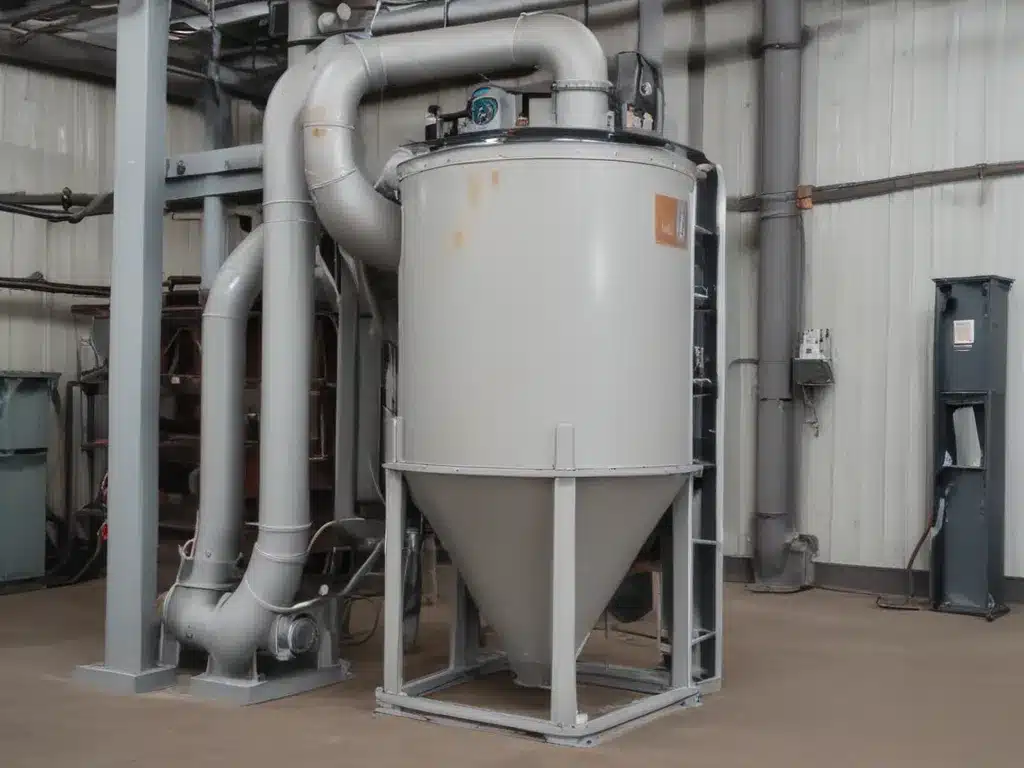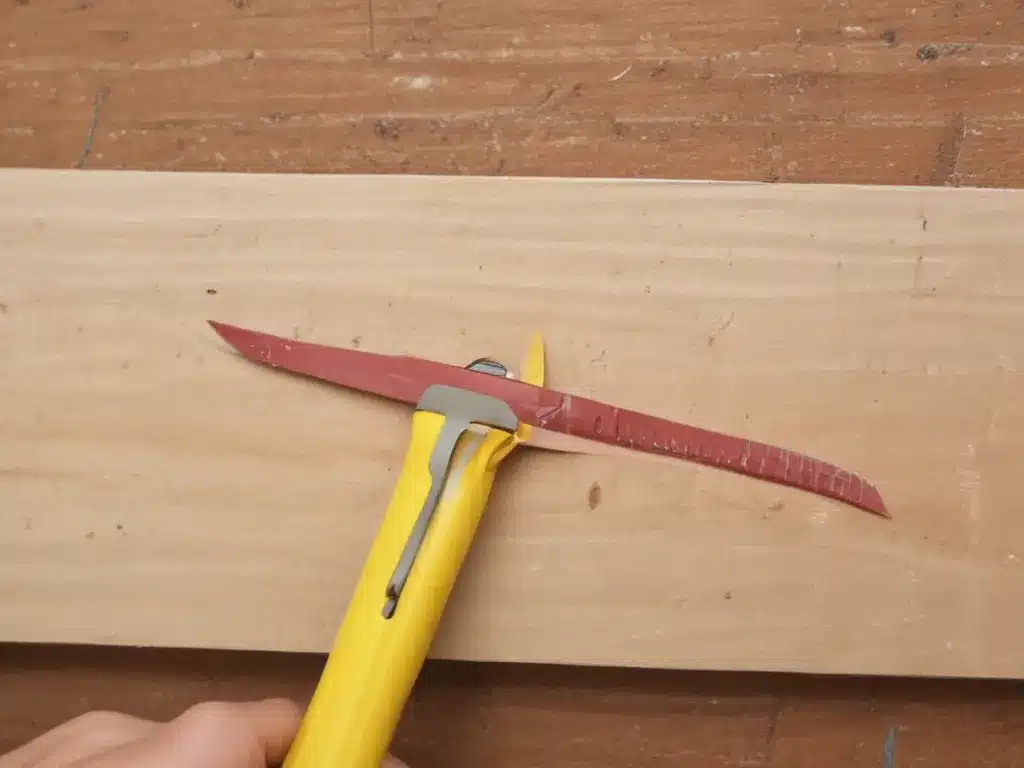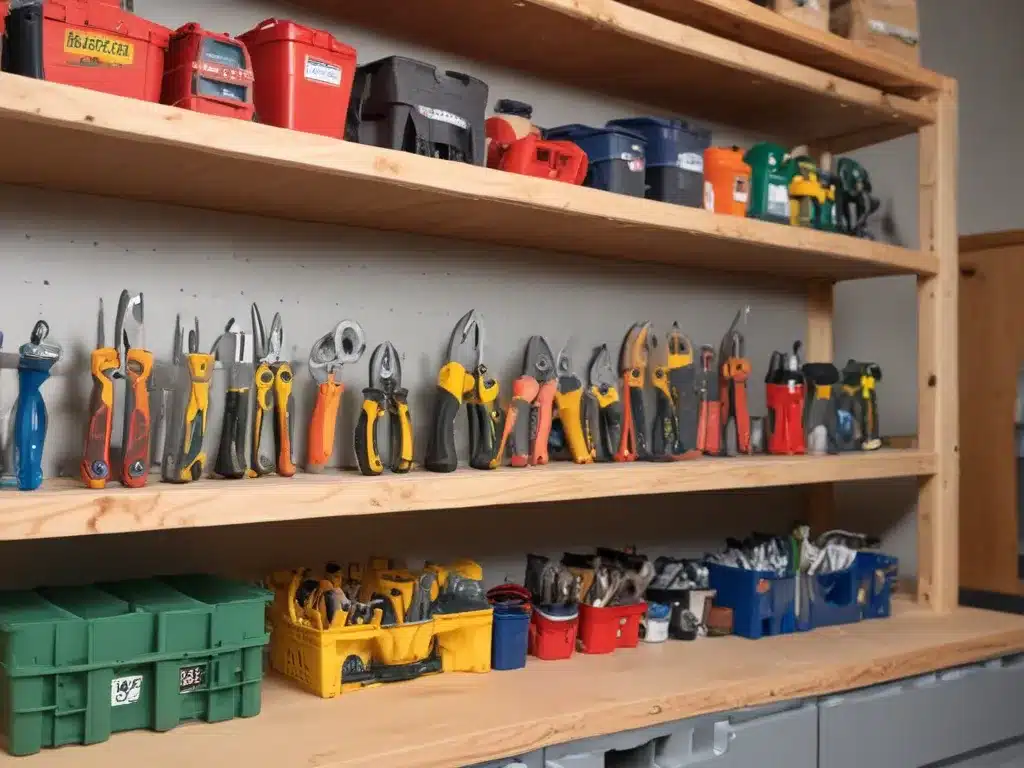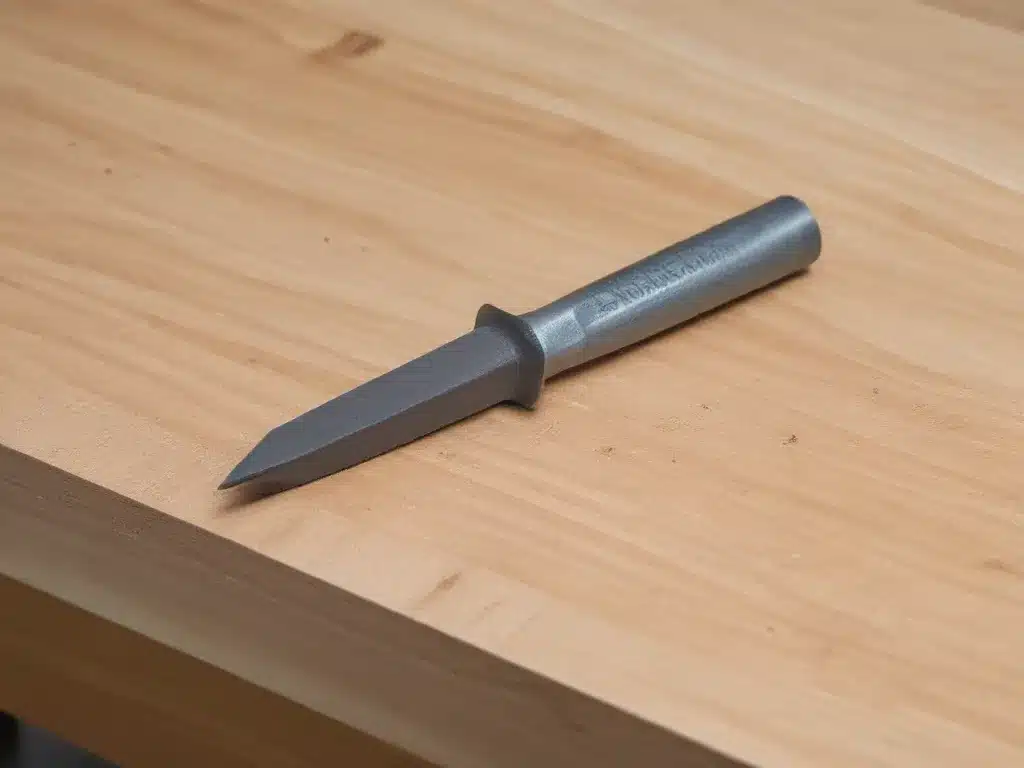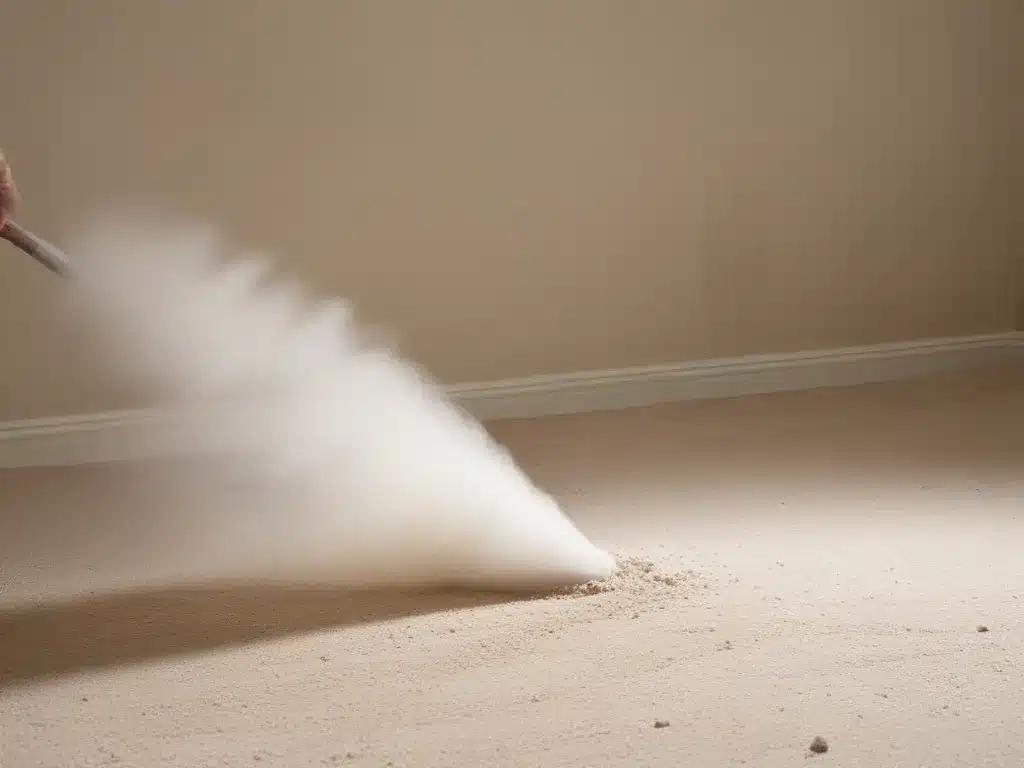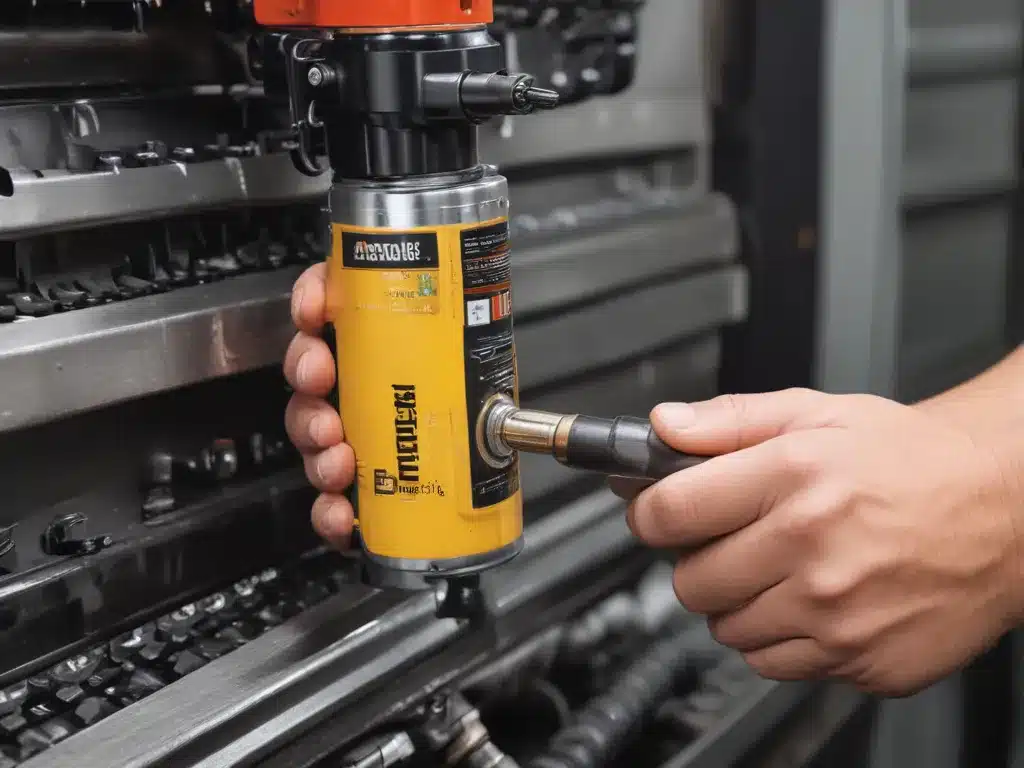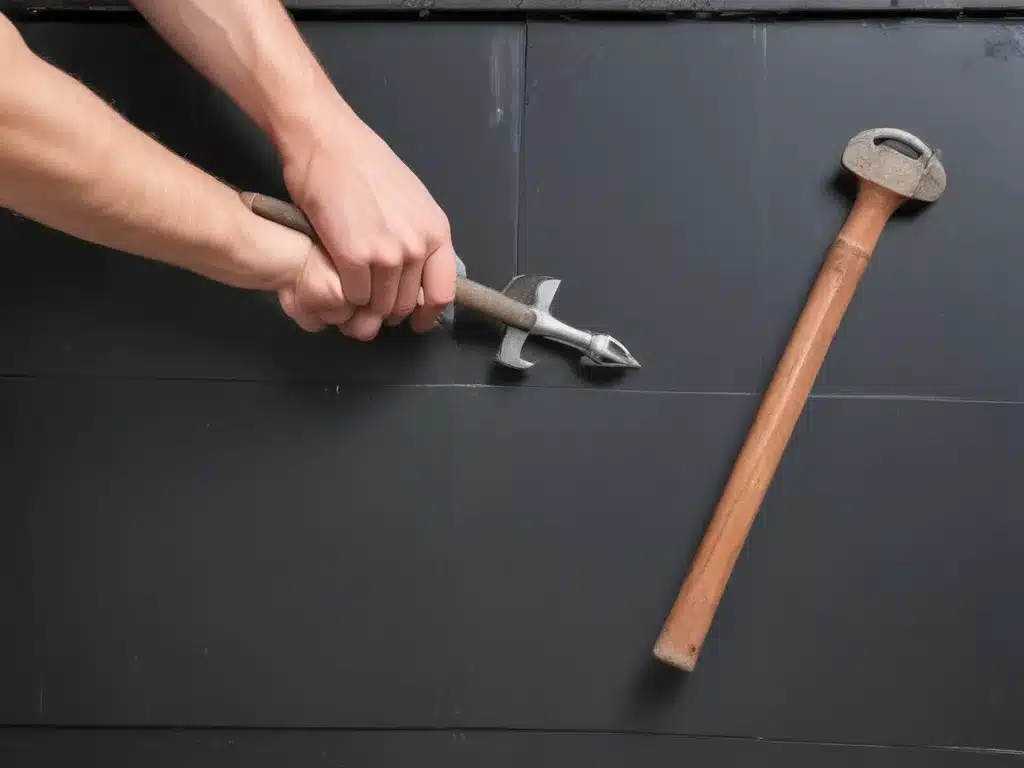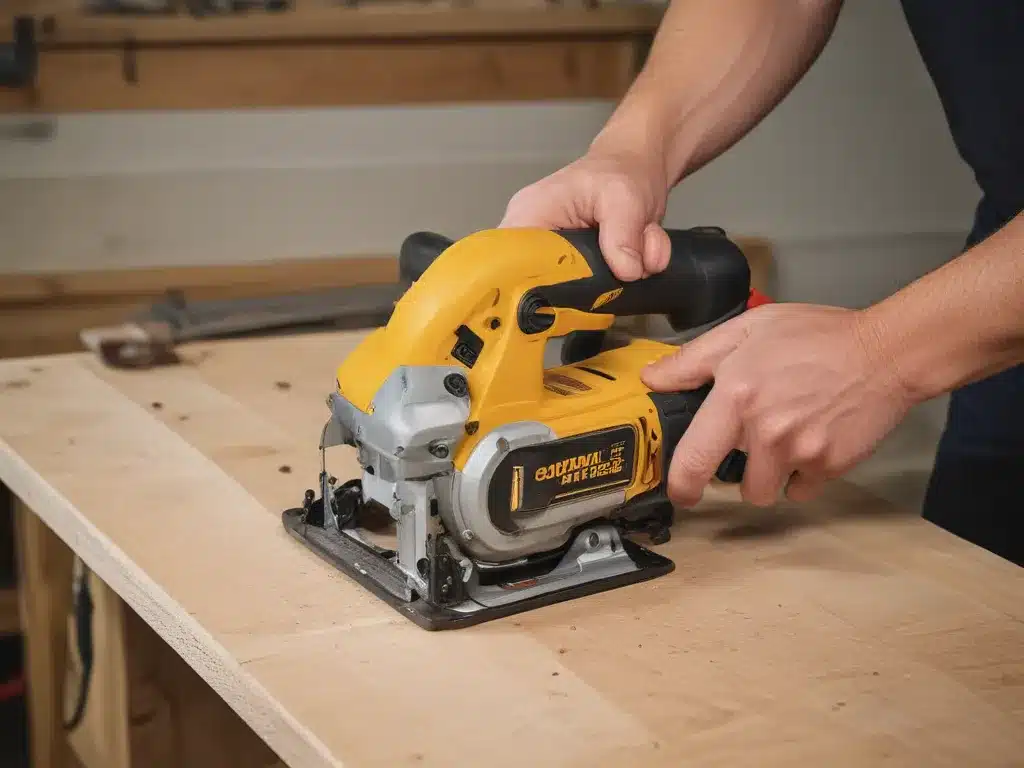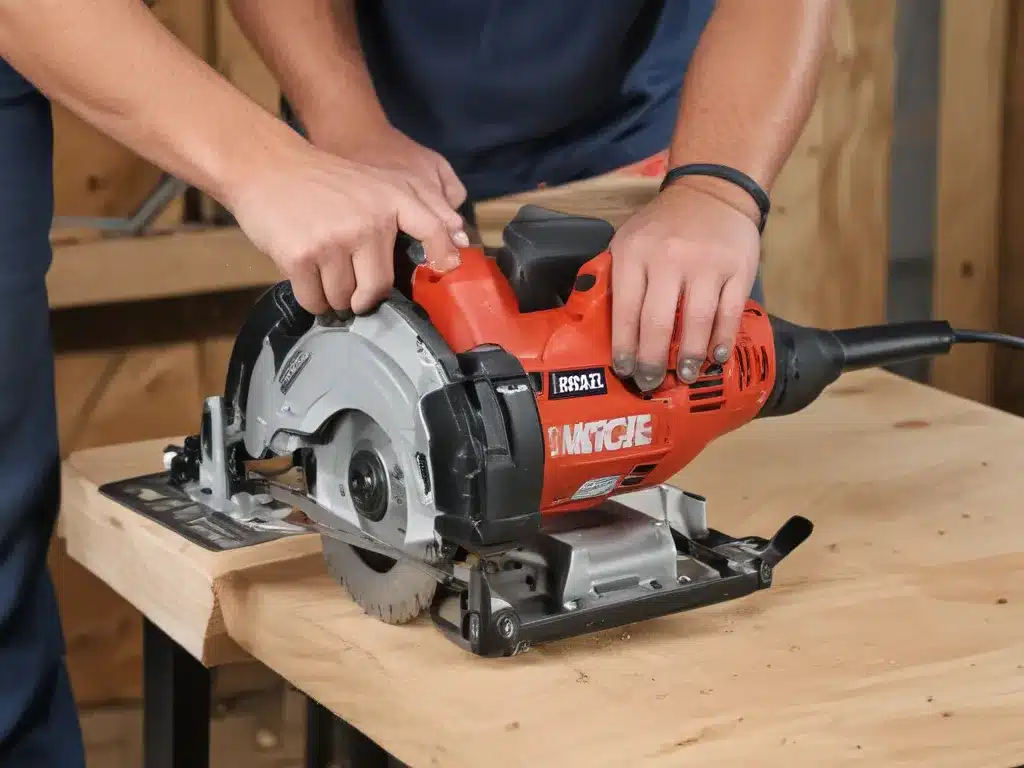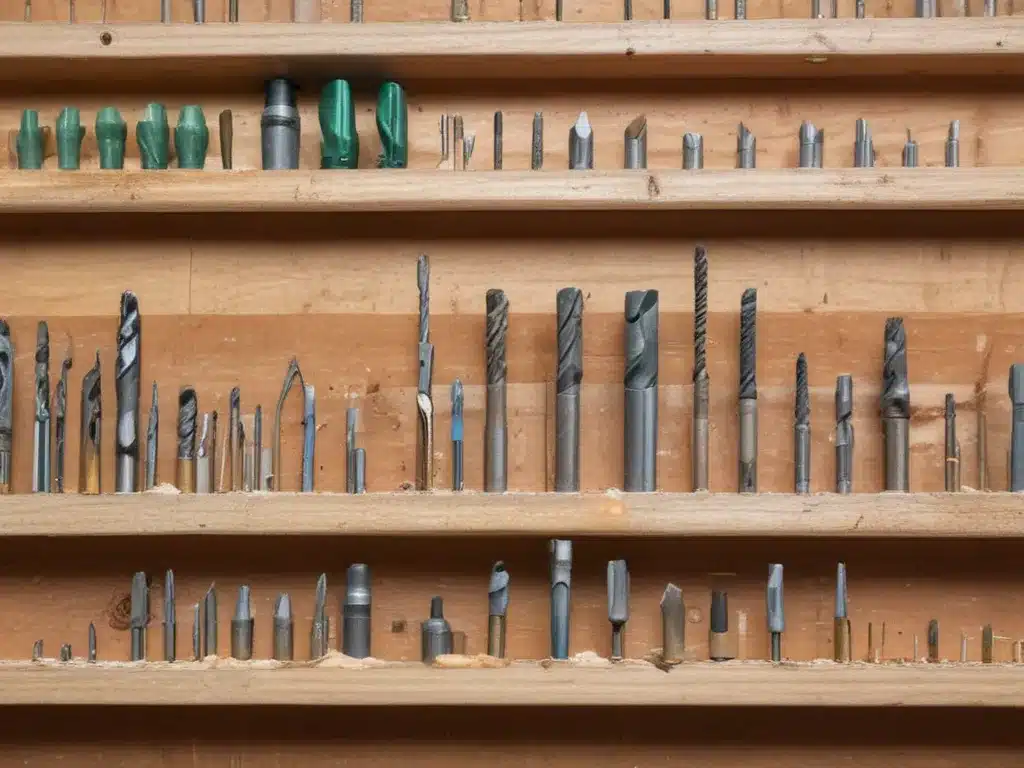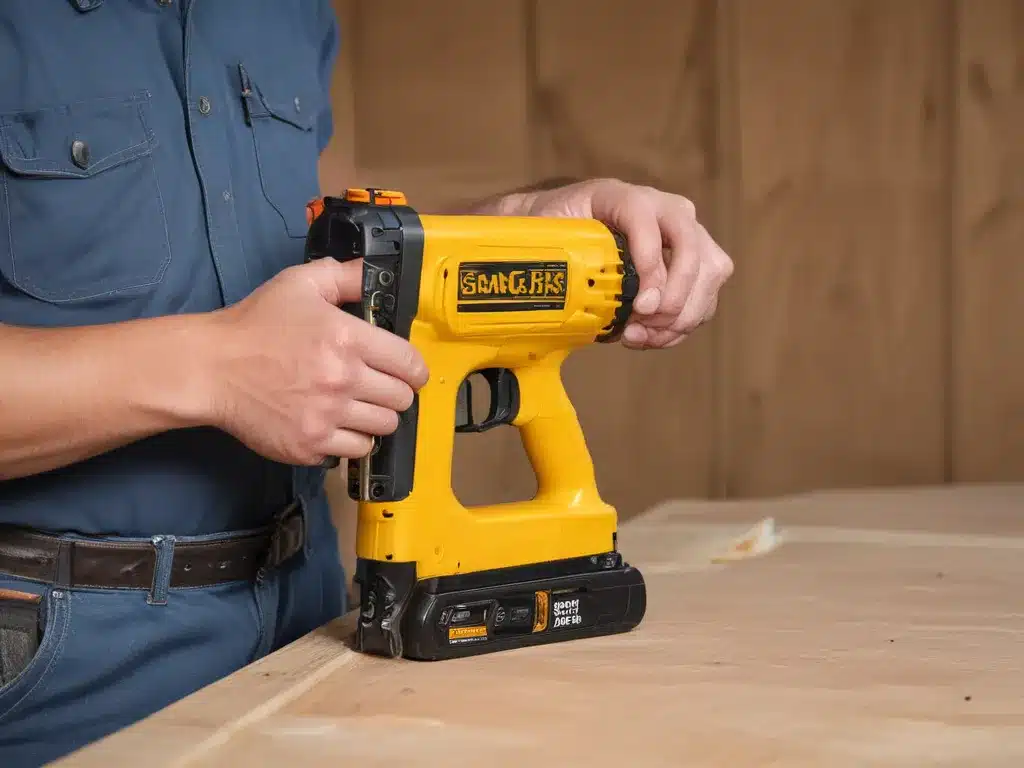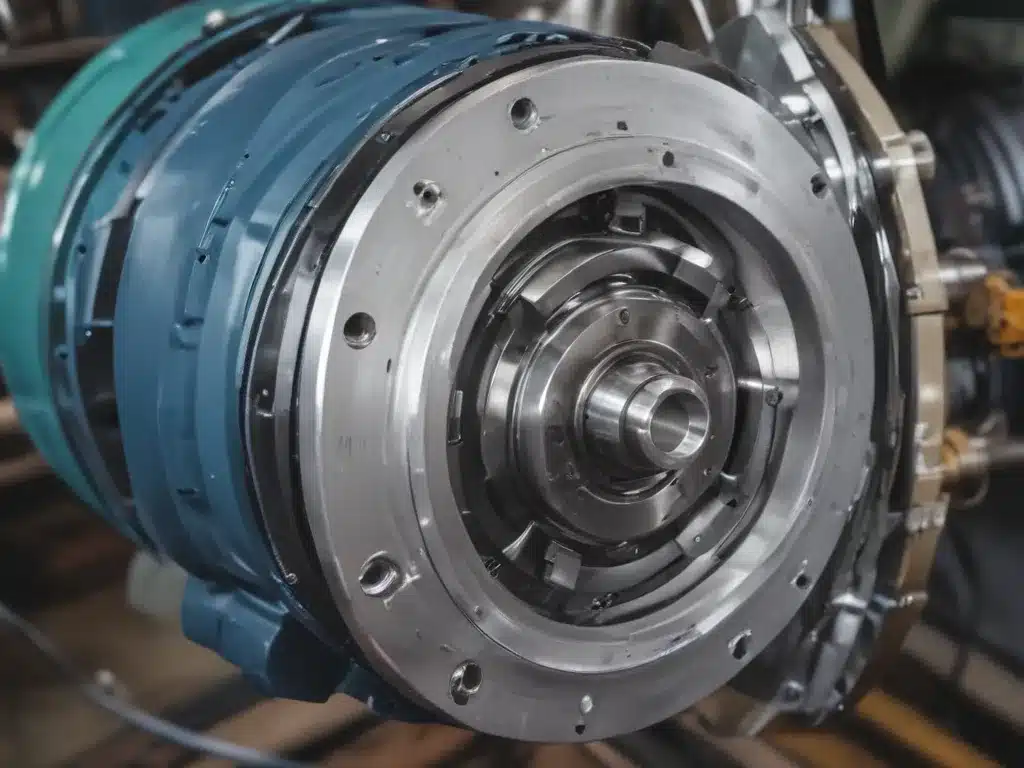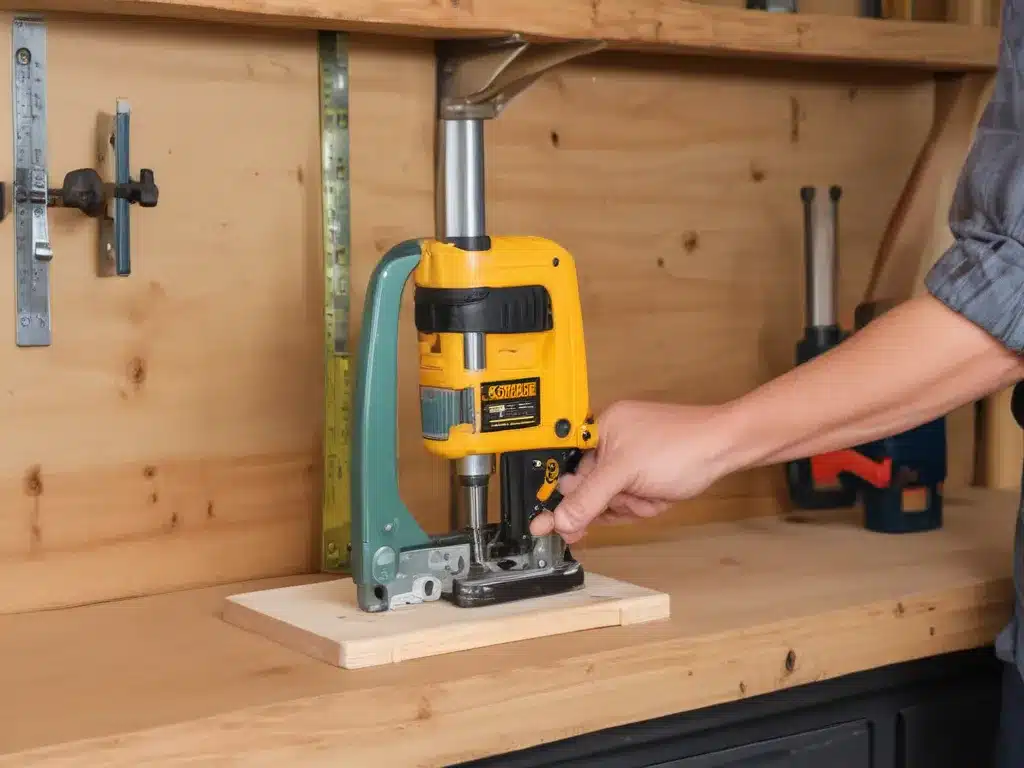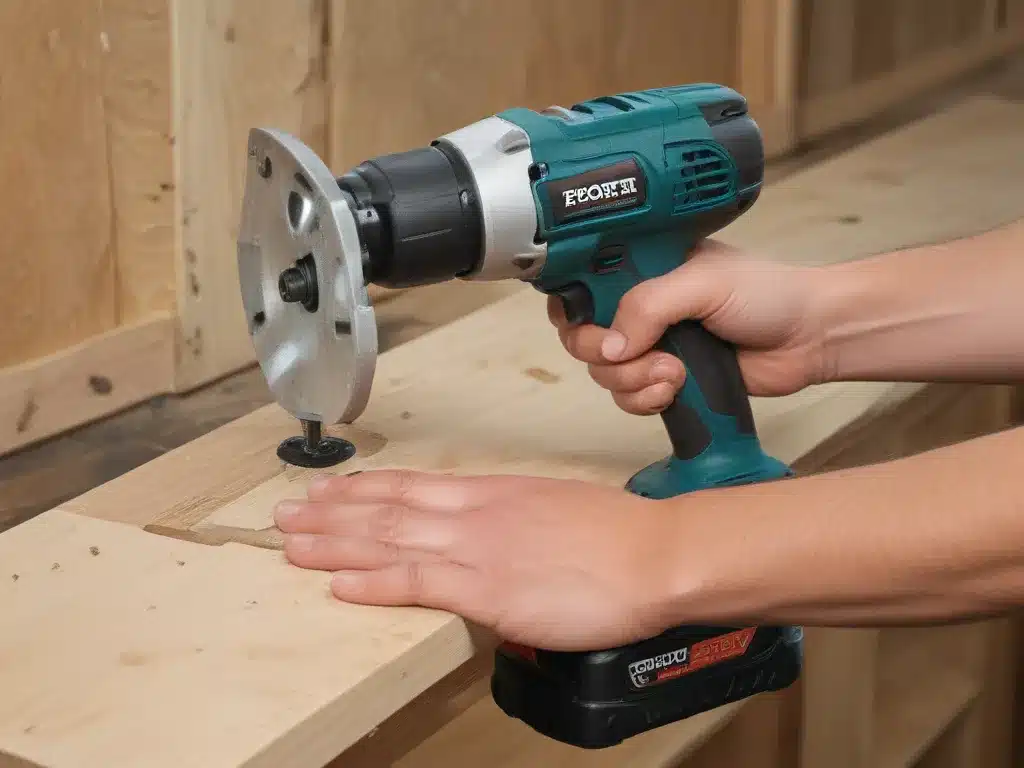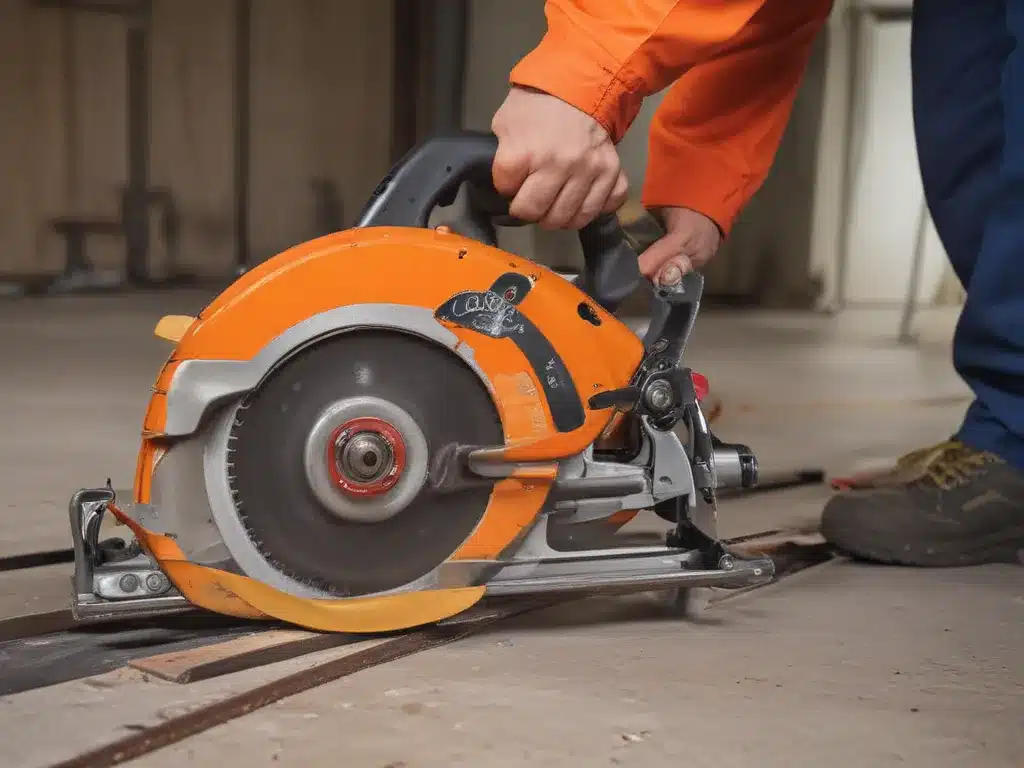The Dust Dilemma: Why Effective Dust Collection Matters
As a passionate woodworker, I know the frustration of dealing with the constant cloud of dust that seems to follow me around the workshop. It’s not just an annoyance, though – poor dust collection can pose serious health risks, from respiratory issues to exposure to harmful particulates. That’s why I’m a firm believer in the power of benchtop dust collectors. These compact, hardworking machines can make a world of difference in keeping your workspace clean and your lungs clear.
But what exactly are benchtop dust collectors, and how can they improve your dust collection game? Let me break it down for you. Benchtop dust collectors are essentially miniature versions of their big, industrial counterparts, designed to be compact and efficient for the hobbyist or small-scale workshop. They work by creating a powerful suction that captures dust and debris at the source, before it has a chance to spread throughout the room.
Now, I know what you might be thinking – “But won’t a big, industrial-grade dust collector work just as well?” Well, my friends, let me tell you, there’s a time and a place for those heavy-duty machines. But for the average woodworker or DIYer, a benchtop collector is often the better choice. They’re more affordable, more portable, and they can be easily integrated into your existing setup without taking up too much precious workshop real estate.
The Anatomy of a Benchtop Dust Collector
So, what makes a benchtop dust collector tick? Let’s take a closer look at the key components that make these machines so effective:
The Motor
The heart of any dust collector is the motor, and benchtop models are no exception. These little powerhouses are designed to generate impressive suction power, often ranging from 1 to 2 horsepower. The motor is responsible for drawing in the dust-laden air, and it’s the driving force behind the collector’s efficiency.
The Impeller
Closely linked to the motor is the impeller, a fan-like component that actually does the heavy lifting when it comes to creating that powerful suction. As the motor spins, the impeller blades whirl, creating a vortex that pulls the air (and all that pesky dust) into the collector.
The Filtration System
But it’s not enough to just suck up all that dust – you need a reliable way to capture and contain it. That’s where the filtration system comes in. Benchtop dust collectors typically use a combination of filters, including pleated fabric filters and micron-level cartridge filters, to trap even the smallest particles and prevent them from being expelled back into the air.
The Dust Collection Bin
Finally, there’s the dust collection bin, which is where all that captured dust and debris ends up. These bins are designed to be easy to empty and maintain, so you can keep your workshop clean and your collector running at peak efficiency.
Choosing the Right Benchtop Dust Collector
Now that you’ve got the lowdown on the inner workings of a benchtop dust collector, it’s time to start thinking about how to choose the right one for your needs. There are a few key factors to consider:
Suction Power
As I mentioned, the motor is the heart of the machine, and the amount of suction power it can generate is crucial. Look for models with at least 1 horsepower, as this will ensure you’ve got the oomph to capture even the finest wood dust particles.
Filter Efficiency
The filtration system is what separates the good dust collectors from the great ones. Look for models with high-efficiency HEPA or micron-level filters that can trap even the smallest particulates. This will not only keep your air cleaner, but it can also extend the life of your collector by preventing clogging.
Dust Collection Capacity
The size of the dust collection bin is also important, as you don’t want to be constantly emptying it mid-project. Aim for a bin that can hold at least a few gallons of dust and debris, so you can work uninterrupted.
Noise Level
Let’s be honest – no one wants to be working in a workshop that sounds like a jet engine. Look for benchtop dust collectors with low noise levels, typically measured in decibels (dB). Aim for models that operate at 70 dB or less for a more peaceful working environment.
Portability
One of the big advantages of a benchtop dust collector is its compact size and mobility. Look for models with casters or wheels, so you can easily move it around your workshop as needed.
Budget
Of course, cost is always a consideration, and benchtop dust collectors can range widely in price. But don’t let a tight budget deter you – there are plenty of great, affordable options out there that can still deliver excellent performance.
Real-World Examples: Benchtop Dust Collectors in Action
Now, you might be wondering, “Okay, this all sounds great, but how do these benchtop dust collectors really perform in the real world?” Well, let me tell you about a few of my personal experiences:
Case Study: The Hobbyist’s Workshop
Take my friend, Alex, for example. He’s a passionate woodworker who operates out of a small garage workshop. When he first started out, he was relying on a basic shop vacuum to manage the dust, but he quickly found that it just couldn’t keep up with the amount of fine particulates he was generating.
That’s when he decided to invest in a benchtop dust collector from powertoolspros.net. He opted for a model with a 1.5 horsepower motor and a high-efficiency filter, and the difference was immediate. Alex reported that his workspace stayed virtually dust-free, even during his most intense sanding sessions. Plus, he found that the compact size of the collector allowed him to tuck it neatly into the corner, freeing up much-needed floor space.
Case Study: The Small-Scale Contractor
Then there’s my buddy, Mike, who runs a small carpentry business. He’s got a well-equipped workshop, but he was struggling to keep up with the dust generated by his miter saw and other power tools. He knew he needed a more robust dust collection solution, but he didn’t want to invest in a massive, industrial-grade system that would take up half his shop.
That’s when Mike decided to give a benchtop dust collector a try. He did his research and ended up choosing a model with a 2 horsepower motor and a large-capacity dust collection bin. The results were nothing short of amazing – Mike said he noticed an immediate improvement in the air quality in his workshop, and he was able to work for longer periods without having to stop and empty the bin.
Case Study: The Weekend Warrior
And then there’s me, the self-proclaimed “weekend warrior” of the group. I’ve got a modest workshop set up in my garage, and I like to tackle all sorts of woodworking projects, from furniture building to custom cabinetry. But I’ll be honest, the dust situation was driving me crazy. I’d finish a project, only to find that every surface in my garage was coated in a fine layer of wood particles.
That’s when I decided to invest in a benchtop dust collector from powertoolspros.net. I was a little hesitant at first, worried that it might not be powerful enough to handle my more ambitious projects. But boy, was I wrong. This little machine has been a total game-changer. It’s kept my workspace clean and clear, and it’s even helped me work more efficiently, since I’m not constantly having to stop and clean up.
The Verdict: Why Benchtop Dust Collectors are a Woodworker’s Best Friend
So, there you have it, my friends – the lowdown on benchtop dust collectors and why they’re a must-have for any serious woodworker or DIYer. These compact, hardworking machines offer a host of benefits, from improved air quality and respiratory health to a cleaner, more organized workspace.
But don’t just take my word for it. As you’ve seen, benchtop dust collectors have proven their worth time and time again, whether you’re a hobbyist, a small-scale contractor, or a weekend warrior like me. They’re a smart investment that can pay dividends in terms of both your productivity and your overall wellbeing.
So, what are you waiting for? If you’re ready to take your dust collection game to the next level, head on over to powertoolspros.net and start exploring their selection of top-notch benchtop dust collectors. Your lungs (and your workshop) will thank you!



